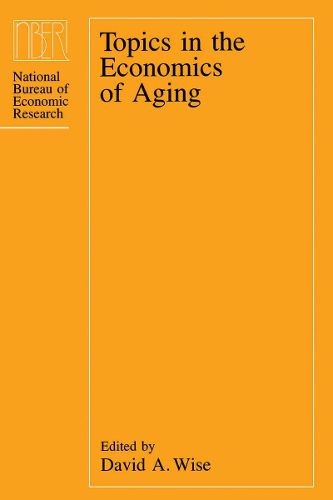Readings Newsletter
Become a Readings Member to make your shopping experience even easier.
Sign in or sign up for free!
You’re not far away from qualifying for FREE standard shipping within Australia
You’ve qualified for FREE standard shipping within Australia
The cart is loading…






The original essays and commentary in this volume–the third in a series reporting the results of the NBER Economics of Aging Program–address issues that are of particular importance to the well-being of individuals as they age and to a society at large that is composed increasingly of older persons. The contributors examine social security reform, including an analysis of the Japanese system; present the startling finding that the vast majority of people choose the wrong accumulation strategies for their pension plans; explore the continuing consequences of the decline in support of parents by children in the postwar period; investigate the relation between nursing home stays and the source of payment for the care; and offer initial findings on the implications of differences between developed and developing countries for understanding aging issues and determining appropriate directions for research.
$9.00 standard shipping within Australia
FREE standard shipping within Australia for orders over $100.00
Express & International shipping calculated at checkout
The original essays and commentary in this volume–the third in a series reporting the results of the NBER Economics of Aging Program–address issues that are of particular importance to the well-being of individuals as they age and to a society at large that is composed increasingly of older persons. The contributors examine social security reform, including an analysis of the Japanese system; present the startling finding that the vast majority of people choose the wrong accumulation strategies for their pension plans; explore the continuing consequences of the decline in support of parents by children in the postwar period; investigate the relation between nursing home stays and the source of payment for the care; and offer initial findings on the implications of differences between developed and developing countries for understanding aging issues and determining appropriate directions for research.